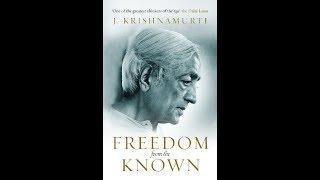Alan wrote over 25 books on subjects such as personal identity, the true nature of reality, higher consciousness, the meaning of life, and the non-material pursuit of happiness. If you want to check out his awesome books, you can use this link https://amzn.to/3Jv7u7Z Thank you!
Can I Be Born Again? Alan Watts talk about Reincarnation
Reincarnation, also known as rebirth or transmigration, is the philosophical or religious concept that the non-physical essence of a living being begins a new life in a different physical form or body after biological death. Resurrection is a similar process hypothesized by some religions, in which a soul comes back to life in the same body. In most beliefs involving reincarnation, the soul is seen as immortal and the only thing that becomes perishable is the body. Upon death, the soul becomes transmigrated into a new infant (or animal) to live again. The term transmigration means passing of soul from one body to another after-death.
Reincarnation is a central tenet of the Indian religions (namely Hinduism, Buddhism, Jainism and Sikhism) and some varieties of Paganism, while there are many groups who do not believe in reincarnation, instead believing in an afterlife.In various forms, it occurs as an esoteric belief in many streams of Judaism in different aspects, in some beliefs of the Indigenous peoples of the Americas, and some Indigenous Australians (though most believe in an afterlife or spirit world). A belief in rebirth/metempsychosis was held by Greek historical figures, such as Pythagoras, Socrates, and Plato, as well as in various modern religions.
Although the majority of denominations within Christianity and Islam do not believe that individuals reincarnate, particular groups within these religions do refer to reincarnation; these groups include the mainstream historical and contemporary followers of Cathars, Alawites, the Druze, and the Rosicrucians. The historical relations between these sects and the beliefs about reincarnation that were characteristic of Neoplatonism, Orphism, Hermeticism, Manichaenism, and Gnosticism of the Roman era as well as the Indian religions have been the subject of recent scholarly research.[In recent decades, many Europeans and North Americans have developed an interest in reincarnation, and many contemporary works mention it.
The word reincarnation derives from a Latin term that literally means 'entering the flesh again'. Reincarnation refers to the belief that an aspect of every human being (or all living beings in some cultures) continues to exist after death. This aspect may be the soul or mind or consciousness or something transcendent which is reborn in an interconnected cycle of existence; the transmigration belief varies by culture, and is envisioned to be in the form of a newly born human being, or animal, or plant, or spirit, or as a being in some other non-human realm of existence.
An alternative term is transmigration, implying migration from one life (body) to another.[16] The term has been used by modern philosophers such as Kurt Gödel and has entered the English language.
The Greek equivalent to reincarnation, metempsychosis (μετεμψύχωσις), derives from meta ('change') and empsykhoun ('to put a soul into'), a term attributed to Pythagoras. Another Greek term sometimes used synonymously is palingenesis, 'being born again'.
These religions believe that this reincarnation is cyclic and an endless Saṃsāra, unless one gains spiritual insights that ends this cycle leading to liberation.[ The reincarnation concept is considered in Indian religions as a step that starts each "cycle of aimless drifting, wandering or mundane existence," but one that is an opportunity to seek spiritual liberation through ethical living and a variety of meditative, yogic (marga), or other spiritual practices.[
(Source wiki)
- Category
- Alan Watts





